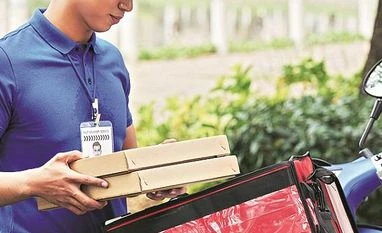The country's largest retailer, Future Group, will step into the competitive food delivery space by launching cloud kitchens. In a conversation with Business Standard, Future Group Chief Executive Officer Kishore Biyani said the plan was to be present during every meal, including breakfast, lunch, snacks and dinner. “Whichever way food is being consumed in India, we want to be part of that business,” he said.
While Biyani declined to specify the details, including the timing of the launch and the cities he was targeting, analysts expect the company to soft-launch the service in cities like Mumbai, Delhi, and Bengaluru. A spread across cities could come later, depending on the response to the venture.
Biyani may also integrate his food delivery business with his mobile application Future Pay to improve penetration. Affordability could be the key route to market, he said, with lunch and dinner meals priced as low as Rs 40, while snacks could come at Rs 10. “In the next two years, we propose to be the largest food retailing company in the country,” he said when asked about his vision for the business.
Online food ordering and delivery is a growing market in India, pegged at Rs 50,000 crore, according to industry estimates. Key players include Zomato, Swiggy, UberEats and Foodpanda, with cloud kitchen start-ups such as Faasos, Freshmenu, Holachef and Box8 also delivering food to consumers.
Bengaluru-based RedSeer Consulting pegs the rate of growth of online food ordering and delivery in India at 15 per cent per quarter, with the figure expected to grow in the future. Already the order run rate per month of key brands such as Zomato and Swiggy is pegged at 21-22 million, and the two are fighting a stiff battle with each other to improve this number.
Biyani is also working on improving back-end operations to achieve his objective of becoming the largest food retailer in the country. Setting up smart distribution centres is part of this process — the fifth such centre was launched in Patiala (Punjab) on Friday. The group's 'India Food Grid' project, a network of 38 large warehouses, is aimed at improving efficiencies of scale. The project would be the backbone of Group’s next phase of growth as it would help it add Rs 70,000 crore worth of goods per annum into the system, Biyani said.
Future is spending Rs 1,000 crore on the project as food and fast-moving consumer goods (FMCG) emerge as its categories of growth in the coming years.
While fashion and apparels were the cornerstones of Future Group’s retailing strategy in the past, it is food and FMCG that is expected to give it nearly 60 per cent of its revenue in the future, Biyani said.
Future Consumer, the food & FMCG arm of the group, has clocked a compounded annual growth rate of 32 per cent over the last three years in terms of its top line, touching Rs 3,000 crore in FY18 (2017-18). The company turned EBITDA (earnings before interest, tax, depreciation and amortisation) positive in FY17 (at Rs 20.7 crore), with FY18 EBITDA at Rs 66.4 crore. It is expected to turn profitable after tax by FY20.
The group has also set an ambitious target of opening some 15,000 small-format stores (under the Aadhar brand name) using the franchise and company-owned models over five years. These stores, billed as modified kiranas, are meant for towns with a population of less than 50,000, Biyani said. Moreover, the group’s network of EasyDay outlets — meant for towns with over 50,000 people — will touch 10,000 from under 1,000 now in five years.
Future is spending Rs 1,000 crore on the project as food and fast-moving consumer goods (FMCG) emerge as its categories of growth in the coming years.
While fashion and apparels were the cornerstones of Future Group’s retailing strategy in the past, it is food and FMCG that is expected to give it nearly 60 per cent of its revenue in the future, Biyani said.
Future Consumer, the food as well as FMCG arm of the group, has clocked a compounded annual growth rate of 32 per cent over the last three years in terms of its top line, touching Rs 3,000 crore in FY18 (2017-18).
The company turned EBITDA (earnings before interest, tax, depreciation and amortisation) positive in FY17 (at Rs 20.7 crore), with its FY18 EBITDA at Rs 66.4 crore. The company is expected to turn profitable after tax by FY20.
The group has also set an ambitious target of opening some 15,000 small-format stores (under the Aadhar brand name) using the franchise and company-owned models over five years. These stores, billed as modified kiranas, are meant for towns with a population of less than 50,000, Biyani said. Moreover, the group’s network of EasyDay outlets — meant for towns with over 50,000 people — will touch 10,000 from under 1,000 now in five years.
Unlock 30+ premium stories daily hand-picked by our editors, across devices on browser and app.
Pick your 5 favourite companies, get a daily email with all news updates on them.
Full access to our intuitive epaper - clip, save, share articles from any device; newspaper archives from 2006.
Preferential invites to Business Standard events.
Curated newsletters on markets, personal finance, policy & politics, start-ups, technology, and more.
)